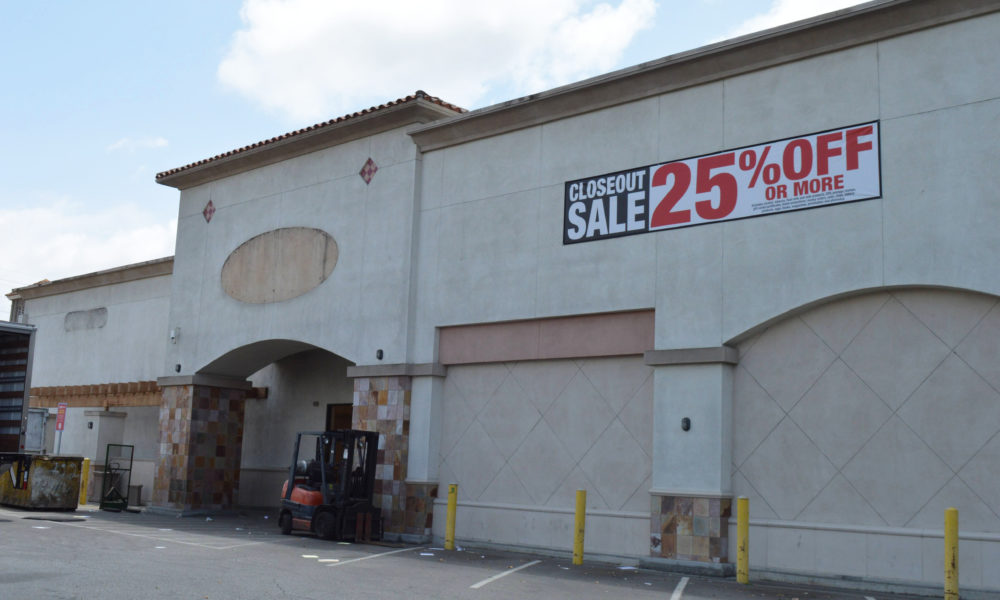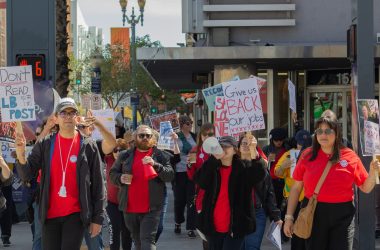By: Julia Terbeche and Ashley Ramos
As two grocery stores in Long Beach have closed, the community continues to feel the impact of the city’s implementation of Hero Pay, a raise for those working on the frontlines during the coronavirus pandemic.
Rolled out by Mayor Robert Garcia on Jan. 20, the emergency ordinance provides supermarket employees an extra $4 per hour in addition to their regular wages, citing that local grocery chains had hundreds of positive COVID-19 cases among their workers. It also claims that “top retail companies had a 39% increase in profit averaging an extra $16.9 billion in 2020.”
The Long Beach Post reported in February that Kroger Co., which owns Food 4 Less and Ralphs, is closing two grocery stores in the city due to “misguided action by the Long Beach City Council” that “oversteps the traditional bargaining process and applies to some, but not all, grocery workers in the city.”
Both locations, a Ralphs at 3380 N. Los Coyotes Diagonal and Food 4 Less at 2185 E. South St., were shut down on April 17.
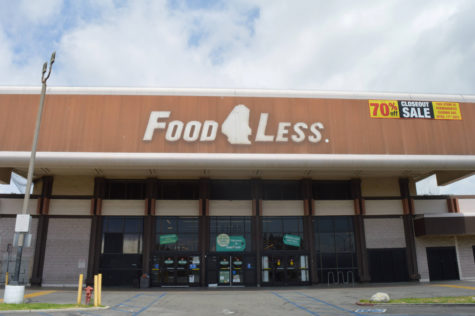
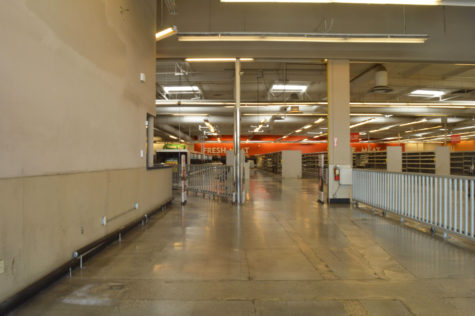
However, a report by the Brookings Institution found that in 2020, Kroger’s profits doubled, and the company spent nearly $1 billion to “buy back its own stock shares.”
<blockquote class=”twitter-tweet”><p lang=”en” dir=”ltr”>From the <a href=”https://twitter.com/BrookingsInst?ref_src=twsrc%5Etfw”>@BrookingsInst</a> report 👇🏾 <a href=”https://t.co/Z60J3a10jn”>pic.twitter.com/Z60J3a10jn</a></p>— Robert Garcia (@RobertGarcia) <a href=”https://twitter.com/RobertGarcia/status/1356386271384326146?ref_src=twsrc%5Etfw”>February 1, 2021</a></blockquote> <script async src=”https://platform.twitter.com/widgets.js” charset=”utf-8″></script>
How it started
Councilwoman Mary Zendejas, who sponsored the ordinance, explained that Hero Pay is “a legally binding mandate for all companies that fit the description of the policy and operate within Long Beach” and is enforced through civil legal action.
“I understand that this raises barriers in cases where workers are being denied benefits but may not have access to legal remedies, but, in my position as a councilmember, I can encourage people to reach out to some of our amazing non-profit organizations like the Legal Aid Foundation of Los Angeles and others to help force their employers to comply,” Zendejas said in an email.
It is considered retaliation for an employer to cut hours, work opportunities or benefits in response to the ordinance, which she said “isn’t legally permitted.” Despite this, Zendejas said that Kroger won’t be facing legal consequences from the city.
“The Kroger Corporation is allowed to make any legal business decisions they feel they must, but it’s on them to suffer the ramifications of those actions without blaming the city in ways that are disingenuous and untrue,” Zendejas said.
Community reacts
Local activist groups have voiced their disapproval of Kroger’s decision, some even hosting a “Boycott Kroger Action Week” with rallies to protest the company.
Embed IG post
Long Beach resident Anthony Bryson helped organize the event in solidarity with Kroger employees.
“You are heroes, and you deserve Hero Pay,” Bryson said at a protest in February.
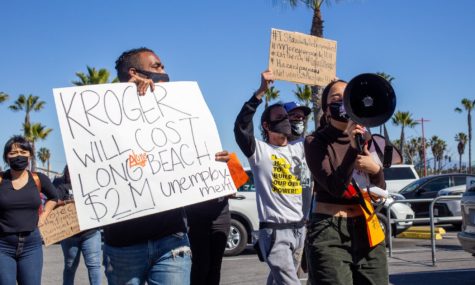
Rachel Osuna, a senior at Lakewood High School with Voices of Long Beach, participated in the February protest to fight for essential workers who are predominantly people of color that “can be fired for standing up for themselves.”
“The closing of these stores is very, it’s terrible,” Osuna said. “Being the working class, we live paycheck to paycheck, like we get that paycheck, we have to pay our bills, we have people who have kids, they got to help their kids and feed their kids, and the closing of these stores it makes us angry and it’s it’s injustice.”
How do the workers feel?
A cashier at Lazy Acres Natural Market, Jonathan Alvarado, said he feels “fortunate and very thankful” to receive hazard pay, especially since he didn’t expect any economic relief from his company.
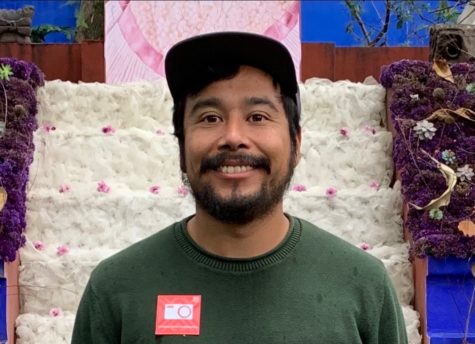
“I never thought that something like that would be allowed to be given to us, to the store,” Alvarado said.
Lazy Acres is a five-store subsidiary of the California supermarket chain Bristol Farms Inc., which operates 19 total stores in the state.
Alvarado, who graduated from Long Beach State in 2016, said he feels deserving of this pay after having contracted COVID-19 earlier this year, possibly from his store. He has to remind customers to wear their masks in his store, which he thinks is “strange” as regulations have been in place since last year.
“We’re giving you the right to come into this grocery store and buy your groceries, but every time you’re in here you have to comply by the rules that we follow here,” he said. “Their face mask is like below their nose and we just have to remind them ‘Can you please pull up your face mask.’”
Though hourly workers receive the extra $4, Alvarado confirmed that higher-level Lazy Acres employees do not, causing some to earn more total pay than those in leadership roles. He said that his manager, Steve Hart, is among those not receiving Hero Pay.
Hart told the Daily Forty-Niner that he is “not able to address this per corporate policy.”
“It’s just kind of unfair because they’re looking out for their employees as well, and they’re there with us,” Alvarado said. “But for them not to receive any sort of like compensation…I find that very strange.”
Teri Mondor, a Ralphs employee for 39 years, said she “wishes Kroger was honest about the reason” for the store closures, which she said is because of competition from a newly built Amazon Fresh, “not because of the four dollars.”
“I have put my life on the line during this pandemic,” said Mondor, who works at the Marina Pacifica Mall Ralphs. “I don’t see those executives from the main office coming out here the way they used to all the time. They’re at home.”
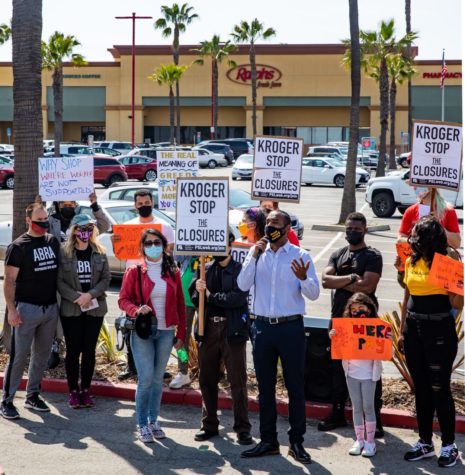
Another Ralphs employee, who asked to remain anonymous in fear of being fired, said they feel deserving of Hero Pay after taking on additional responsibilities during the pandemic.
Aside from having to “clean up after literally everyone,” they said they’ve experienced “so much racism and had to deal with discrimination.”
“I had to deal with issues with my managers, and it’s hard for us to even use the restroom because we are on company time,” they said. “So it’s pretty difficult, but I’m just trying to live by it because it’s a job.”
Some stores aren’t getting Hero Pay
Although places like Target and Walmart also sell groceries, they aren’t included in the Hero Pay ordinance.
Aziza Gomez, a fourth-year saxophone performance major at CSULB, started working at Target in April 2020. Prior to the pandemic, she worked at a movie theater but “jumped ship so fast” due to coronavirus-related closures.
Gomez said that despite testing negative for COVID-19, her employers at Target cleared her to return to work.
“I worked the whole pandemic, like, I’m exposed to [COVID-19],” Gomez said. “There was a point where every day there was a confirmed case within the company.”
Embed video
According to Zendejas, Hero Pay was implemented to accommodate grocery workers struggling while their stores saw record sales. While she feels that these residents in particular deserved the raise, she hopes that the city can help others in the future.
“The reason I brought this policy in Long Beach is, in part, that I saw grocery stores and workers as a very specific opportunity in which we had just absolutely historic profits on one side and a very high-risk work environment with a lot of low-wage employees on the other,” Zendejas said. “This is absolutely not to suggest that so many others in our city aren’t deserving of these same benefits for the risks they assumed to keep some critical businesses open throughout this pandemic, but, working with our city attorney, this is what we identified as our best opportunity to make a difference.”
Although this was a city-mandated ordinance, stores were required to fund Hero Pay from their own profits. This has led to questions of whether the city will replenish the stores’ losses, something Zendejas is “not interested in seeing.”
She maintained that the stores could afford this pay due to the “record-breaking profits being made during the pandemic.”
“Each of these companies — Kroger included — voluntarily offered hazard pay to their employees at the start of the pandemic with no adverse financial consequences,” Zendejas said. “Stores are more than able to afford this small, temporary measure.”
Kroger also plans to close more locations in May following the passage of a $5-per-hour hazard pay ordinance in Los Angeles.

